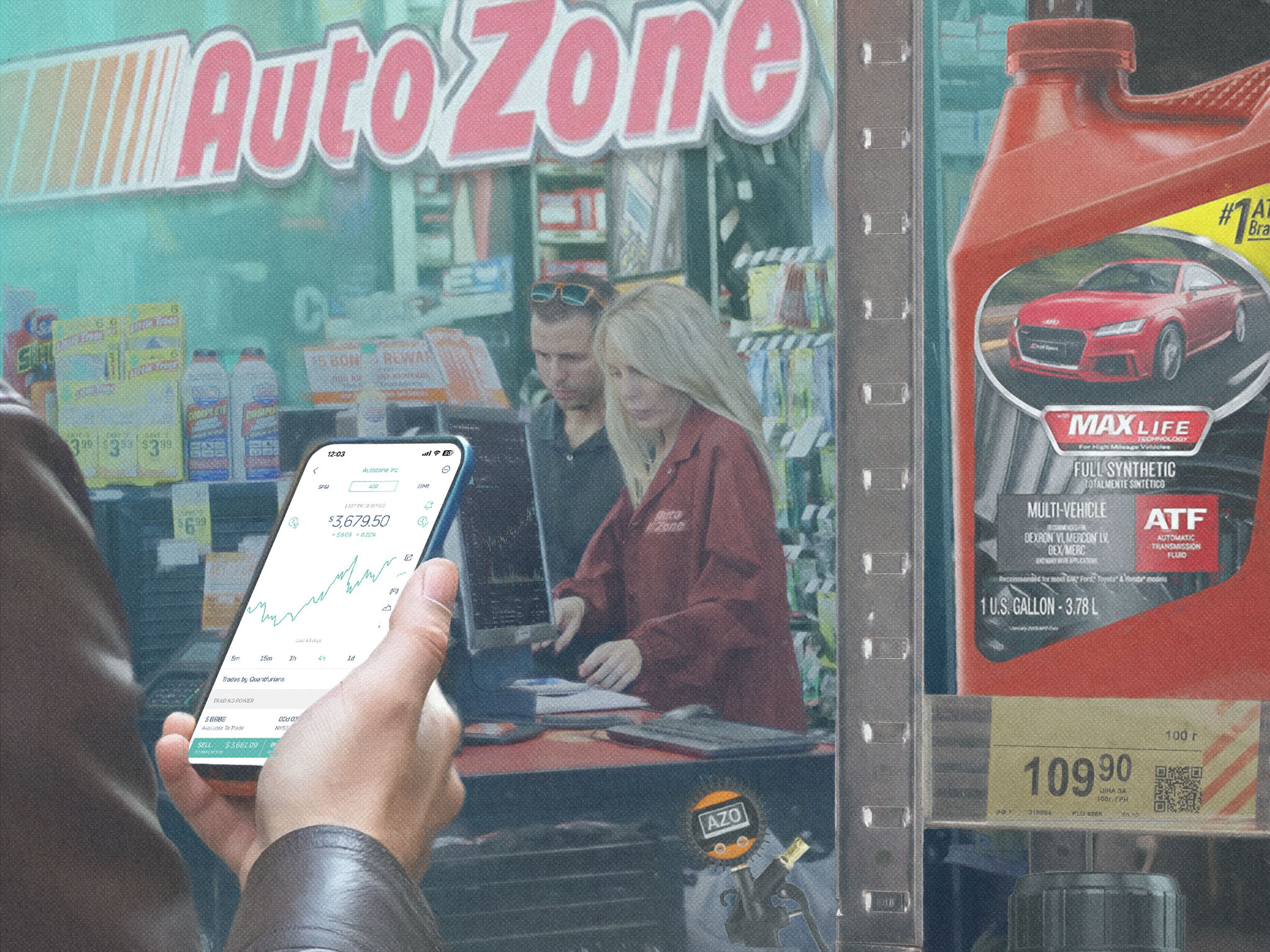“Get in the zone – AutoZone,” the auto-parts retailer (NYSE: AZO) says in its TV commercials. Maybe that’s good advice.
The stock has generated annualized returns of 22% over the past three years, more than double the S&P 500’s return of 10%. It now stands at $3,649.
The company benefits from a stellar distribution network connected to its more than 6,500 stores worldwide. In addition, its vast array of products are must-haves for consumers, as many Americans need a working car to pursue their daily lives.
Stellar customer service also gives AutoZone a leg up. AutoZone garners 85% of sales from failure and maintenance products, such as alternators and spark plugs, that are necessary for cars to function. That makes customer service important, notes Morningstar analyst Noah Rohr.
That strong service enables the company to keep customers coming, even as online competitors and Walmart can offer cheaper prices on auto parts. So it’s no wonder that AutoZone continuously sports gross profit margins above 50%.
Mostly do it yourselfers
About 70% of AutoZone’s US business comes from do-it-yourself customers, with the rest from commercial customers. Rohr expects those numbers will shift more toward the commercial side, putting modest pressure on profit margins.
The company holds just a 13%-14% share of the do-it-yourself market, according to the Auto Care Association. So there would seem to be plenty of room for growth there. Analysts also are enthusiastic about potential for the commercial side of AutoZone’s business. That segment grew 7% for AutoZone in the quarter ended Feb. 15. The company has only a 5% share of commercial business.
Earnings for the quarter were a mixed bag. Comparable sales gained just 0.5%. But excluding currency effects, overall comparable sales rose 2.9% and foreign comparable sales rose 9.5%.
Analysts remain optimistic. Though operating margins slid in the quarter, “management’s commitment to improve part availability and service speeds with commercial customers should support its competitive standing,” Rohr says.
The impact of tariffs
Tariffs are now a concern for any company involved with manufactured products. However, “we’re not importing vehicles,” AutoZone CEO Philip Daniele pointed out in the company’s earnings call.
The average ticket for AutoZone customers is $30. So a 10% rise in tariffs, if passed along fully into retail prices, would mean only a $3 price increase, he says. “It’s not like a $60,000 or $70,000 automobile.”
Meanwhile, the company plans to increase its store count. It intends to open 19 more mega-hubs by Aug. 15 and has 91 in the pipeline, Daniele says. Mega-hubs are larger than the company’s standard stores. Also, for the year ending Aug. 15, AutoZone expects to open about 100 stores overseas, raising its foreign store share above the current 13% level.
One other note: AutoZone’s decision not to split its stock since 1994, despite its high share price, reflects a strategy of maintaining valuation and appealing to institutional investors. But it may limit access for retail investors.
In any case, the company’s future bodes well, though the impact of tariffs and profit-margin pressure warrant monitoring.
“AutoZone’s reputation for strong customer service, its distribution network, and the nondiscretionary nature of its product offerings should allow the firm to deliver strong returns on invested capital for the foreseeable future,” Rohr says.




Comments